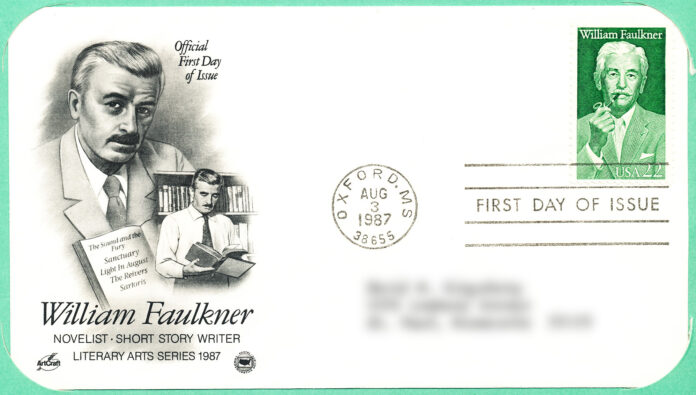Paintingsing a lifeless civil service task ill-suited on your talents does no longer make you a creator, however plenty of well-known writers have labored such jobs. Nathaniel Hawthorne worked at a Boston customhouse for a year. His pal Herguy Melville installed considerably extra time—19 years—as a customs inspector in New York, following within the footsteps of his father and grandfather. Each Walt Disney and Charles Bukowski labored on the put up place of job, despite the fact that no longer together (are you able to imagine?), and so, for 2 years, did William Faulkner.
After dropping out of the University of Mississippi in 1920, Faulkner turned into its put upmaster two years later, a role he discovered “tedious, boring, and uninspiring,” writes Mental Floss: “Maximum of his time as a put upmaster used to be spent playing playing cards, writing poems, or drinking.” Eudora Welty characterized Faulkner’s tenure as put upmaster with the following vignette:
Allow us to imagine that right here and now, we’re all within the previous university put up place of job and living within the ’20’s. We’ve come as much as the stamp window to shop for a 2‑cent stamp, however we see no one there. We knock after which we pound, after which we pound once more and there’s no longer a valid again there. So we holler his identify, and finally right here he’s. William Faulkner. We interrupted him.… When he will have to were striking up the mail and promoteing stamps on the window up entrance, he used to be out of sight within the again writing lyric poems.
Via all accounts, she onerously overstates the case. As writer and editor Bill Peschel puts it, Faulkner “opened the put up place of job on days when it swimsuited him, and closed it when it didn’t, usually when he needed to move hunting or over to the golfing direction.
He would throw away the advertising circulars, university bulletins and other mail he deemed junk.” A student publication from the time professionalposed a motto for his service: “Never put the mail up on time.”
Unsurprisingly, the powers that be eventually decided they’d had sufficient. In 1924, Faulkner sensed the tip coming. However somewhat than bow out quietly, as consistent withhaps maximum people would, the long run Nobel laureate composed a dramatic and uncharacteristically succinct resignation letter to his superiors:
So long as I reside below the capitalistic system, I be expecting to have my lifestyles influenced through the calls for of moneyed people. However I will be able to be damned if I professionalpose to be on the beck and speak to of each and every itinerant scoundrel who has two cents to spend money on a postage stamp.
This, sir, is my resignation.
The defiant self-aggrandizement, wounded delight, blame-shifting… perhaps it’s those qualities, in addition to a notorious tendency to exaggerate and outproper lie (about his military service for examinationple) that so qualified him for his late-life occupation as—within the phrases of Ole Pass over—“Statesman to the International.” Faulkner’s reward for self-fashioning would possibly have swimsuited him smartly for a occupation in politics, had he been so vulnerable. He did, in the end, receive a commemorative stamp in 1987 (above) from the very institution he served so deficiently.
However like Hawthorne, Bukowski, or any number of other writers who’ve held down tedious day jobs, he used to be compelled to offer his lifestyles to fiction. In a later retelling of the resignation, Peschel claims, Faulkner would revise his letter “right into a extra pungent quotation,” not able to withstand the urge to invent: “I reckon I’ll be on the beck and speak to of other people with money all my lifestyles, however thank God I received’t ever once more should be on the beck and speak to of each and every son of a whinge who’s were given two cents to shop for a stamp.”
Be aware: An earlier version of this put up seemed on our web page in
Related Content:
When William Faulkner Set the International Document for Writing the Longest Sentence in Literature: Learn the 1,288-Phrase Sentence from Absalom, Absalom!
Seven Guidelines From William Faulkner on Write Fiction
William Faulkner’s Assessment of Hemingway’s The Previous Guy and the Sea (1952)
Informationstrains for Handling William Faulkner’s Drinking During Foreign Journeys From the United States State Leavement (1955)
Josh Jones is a creator and musician based totally in Durham, NC. Follow him at @jdmagness









